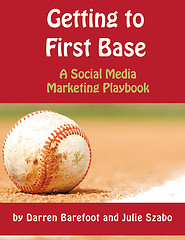Everyone I know has a bedside table piled with books they intend to read. So do I. Usually I can keep it down to 5 titles. I often have multiples on the go. But this year, there was a rich crop of new titles that I did not manage to read.
I’ll see how many I can get to in the fading days of 2007.
1. The Book of Negroes by Lawrence Hill (HarperCollins)
My mom loved this book about a slave who forges her way to freedom and back to her homeland. I’m looking forward to reading it.
2. The Eye: A Natural History by Simon Ings (Bloomsbury)
Science, math, philosophy, history, neuroscience, anecdote and language theory. This is a crazy book about the eye. There’s a story about a guy who wears upside down glasses and eventually his brain “rights” the situation, i.e., the image flips the right way up. Can’t miss this book.
3. Other Colors by Orhan Pamuk (Knopf Canada)
Essays and a story by Orhan Pamuk, an awesome Turkish writer. I’ve wanted to read his stuff since my trip to Turkey in 2005.
4. Untapped: The Scramble for Africa’s Oil by John Ghazvinian (Harcourt Books)
Africa is rich in oil but extracting it hasn’t seemed worth the effort, well, until now. Untapped is about the heavy price Africans are paying/about to pay for the West’s obsession with oil.
5. The Immortal Game by David Shenk (Bond Street Books)
A history of chess. I just lost 3 speed chess games over the holidays. Quirky, absorbing look at how chess has captured the minds of many.
6. Here There Be Dragons by James A. Owen (Simon & Schuster)
Set in WWI London, this is a fantasy, dragon book. Fallen kingdoms, legendary heroes and towers. The next book is out in January. I have to hurry on this one.
7. Cathy’s Book by Stewart, Weisman, Brigg (Running Pressing)
A super cool, interactive book. The fictional journal of Cathy is lost. You’ve found it and by reading the journal, can try to figure out where Cathy has disappeared to. All the emails and phone numbers are functioning. I’ve been looking forward to this one for a while.
8. Getting to Maybe by Frances Westley,Brenda Zimmerman and Michael Patton (Random House Canada)
If you want to change the world, this appears to be the book to read. Thoughtful, insightful, sobering and inspirational ideas for business, government, not-for-profit and individuals. Something I should definitely read for the new year.
9. The Thirteenth Tale by Diane Setterfield (Bond Street Books)
An antiquarian bookshop, a hand-written request and a bit of mystery/history detective work. This was a very popular book in Canada and I’m disappointed that I didn’t get a chance to read it earlier.
10. Falling Man by Don DeLillo (Penguin Books)
Keith emerges from the World Trade Center and makes his way to his ex-wife and son’s home. It’s a novel about the devastation of 9/11 and the moments of after-the-event reflection of this man. It received a starred review in Booklist and I’ve been unsuccessful in making time to read this book, but I definitely will get to it.
11. Water for Elephants by Sara Gruen (Harper Collins Canada)
Runaway bestseller about a guy who runs away with the circus. Looks fantastic.
12. House of Meetings by Martin Amis (Knopf Canada)
Described as haunting! I love Amis. Conjugal visits in the labour camps of the Soviet Union. This is the story of one of those meetings, and a problematic love triangle. I really should have read this one asap. James just noticed it and I’m sure it will disappear from my shelf.
13. The 100-Mile Diet by Alisa Smith and JB MacKinnon (Random House Canada)
I know enough about this book that I feel like I’ve read it. James read it and failed to write a review, but he does talk about it non-stop so there’s hard-core word of mouth happening there. This is the book that inspired, or rather reinforced, our habit of eating locally.
14. The Gum Thief by Douglas Coupland (Random House Canada)
Sounds hilarious, and I’ve never read a Coupland book. Honestly, how can that be? I know. This is a love story set in an office supply store. It’s right up my goofy alley.
15. A Covenant of Salt by Martine Desjardins (Talonbooks)
1791. This is a novel of Quebec and Irish legend, stonecutting, and family grudges.
Any thoughts on which ones I should read first?
 Ani DiFranco Verses is a book of DiFranco’s poetry and paintings. What I like most about the book is the discussion at the end between Ani DiFranco and Sekou Sundiata, who is a spoken-word poet and teacher of literature at The New School.
Ani DiFranco Verses is a book of DiFranco’s poetry and paintings. What I like most about the book is the discussion at the end between Ani DiFranco and Sekou Sundiata, who is a spoken-word poet and teacher of literature at The New School.  The Hermetic Code
The Hermetic Code Cartoonist
Cartoonist 






